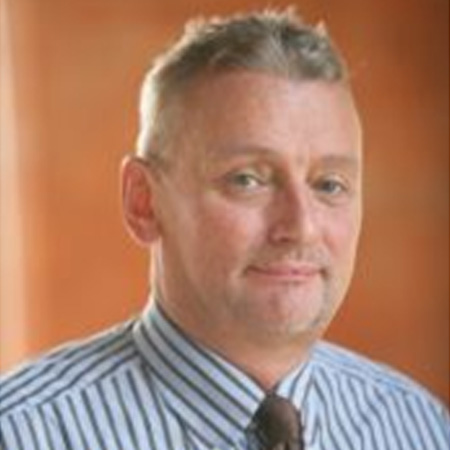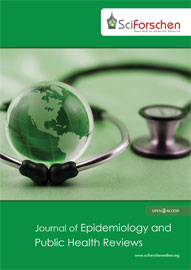
Senior Honorary Research Fellow
Ice-Chair of the UK Universities Association
University of Glasgow
Glasgow, UK
E-mail: rob.mark@glasgow.ac.uk
Education
Biography
Dr. Rob Mark is a Senior Honorary Research Fellow at the University of Glasgow, Scotland and at the Higher Education Research Centre (HERC), Dublin City University. Ireland. He is ice-Chair (International) of the UK Universities Association for Lifelong Learning and Coordinator of the International PASCAL Learning Cities Project. Previously, he was Head of Lifelong Learning at the University of Strathclyde and Director of Education and Research at Queen’s University Belfast, UK. He also worked in the schools, and community and voluntary sectors.
He has had extensive engagement with research and policy activities at national and international levels and has published widely in the broad field of lifelong learning, inter-generational learning, health and well-being and educational transitions and formal and non-formal learning. He has a particular interest in excluded groups such as older adults, adults with literacy difficulties, mental and physical disabilities and learning, and the benefits of lifelong learning policies and practices.
He has contributed to editorial boards of several journals both nationally and internationally, having held the post of editor for the Adult Learner (Ireland) for an 8 year period. He has served on the executive board of several national and international lifelong learning bodies and organizations.
Research Interest
His research interests in excluded groups such as older adults, adults with literacy difficulties, mental and physical disabilities and learning, and the benefits of lifelong learning policies and practices.
Scientific Activities
- Vice Chair (Scotland), University Association of Lifelong Learning Executive Committee, (2010-14)
- European University Continuing Education Network (EUCEN) Scottish Universities Lifelong Learning Network Liaison Officer (2014-15).
- Member of the Strategic Forum for Research in Education.
Publications
- Mark, R (2017) ‘Promoting age friendly universities which are sustainable and open to all: a new challenge for the academy?’ Journal of Widening Participation and Lifelong Learning Open University Press . Milton Keynes (forthcoming).
- Mark, R & Findsen, B. (2016) ‘Older Adult Education in Two Universities: a comparison in the New Zealand and Scottish Contexts’. May 2016; 22 (1) Journal for Adult and Continuing Education Sage Publications
- Mark, R, Slowey, M, Talmage, C., & Knopf , R., (2016) ‘Age Friendly Universities and engagement with older adults: moving from principles to practice’ International Journal of Lifelong Education. Special Issue Taylor & Francis (Routledge).
- Mark, R & Golding, B. (2012) Fostering social policies that encourage engagement of older men in their own learning: challenges for improving the health and well-being of men in the third age. International Journal of Education and Ageing. Vol 2. No 3 July 2012.
- Murphy, M. and Skillen, P. (2016) Exposure to the law: accountability and its impact on street level bureaucracy. Social Policy and Society.
- Costa, C. and Murphy, M. (2016) Introduction: Theorising digital scholarship. Journal of Applied Social Theory, 1(1), pp. 1-4.
- O’Donnell, P., Murphy, M. and Normand, C. (2015) The reinvigoration of Scottish further education sector: an exploration and analysis of the recent reforms. Scottish Educational Review, 47(2), pp. 59-77.
- Murphy, M. and Skillen, P. (2015) The politics of time on the frontline: street level bureaucracy, professional judgment, and public accountability. International Journal of Public Administration, 38(9), pp. 632-641.
- Murphy, M. and Curtis, W. (2013) The micro-politics of micro-management: exploring the role of programme leader in English universities. Journal of Higher Education Policy and Management, 35(1), pp. 34-44.
- Huttunen, R. and Murphy, M. (2012) Discourse and recognition as normative grounds for radical pedagogy: Habermasian and Honnethian ethics in the context of education. Studies in Philosophy and Education, 31(2), pp. 137-152.
- Moran, P. and Murphy, M. (2012) Habermas, pupil voice, rationalism, and their meeting with Lacan's Objet Petit A. Studies in Philosophy and Education, 31(2), pp. 171-181.
- Murphy, M. and Bamber, J. (2012) Introduction: From Fromm to Lacan: Habermas and education in conversation. Studies in Philosophy and Education, 31(2), pp. 103-107.
- Murphy, M. and Brown, T. (2012) Learning as relational: intersubjectivity and pedagogy in higher education. International Journal of Lifelong Education, 31(5), pp. 643-654.
- Murphy, M. (2011) Troubled by the past: history, identity and the university. Journal of Higher Education Policy and Management, 33(5), pp. 509-517.
- Murphy, M. (2011) The ties that bind: distinction, recognition and the relational. International Journal of Interdisciplinary Social Sciences, 5(10), pp. 103-116.
- Murphy, M. (2010) On recognition and respect: Honneth, intersubjectivity and education. Educational Futures, 2(2), pp. 3-11.
- Murphy, M. (2009) Bureaucracy and its limits: accountability and rationality in higher education. British Journal of Sociology of Education, 30(6), pp. 683-695.
- Murphy, M. (2005) Between facts, norms and a post-national constellation: habermas, law and European social policy. Journal of European Public Policy, 12(1), pp. 143-156.
- Murphy, M. and Fleming, T. (2003) Partners in participation: integrated approaches to widening access in higher education. European Journal of Education, 38(1), pp. 25-39.
- Murphy, M. (2003) Covert action? Education, social policy and law in the European Union. Journal of Education Policy, 18(5), pp. 551-562.
- Murphy, M. (2003) Designed to scale: lifelong learning and the European pursuit of integration. Concept: The Journal of Contemporary Community Education Practice and Theory, 13, pp. 21-25.
- Murphy, M. (2002) Creating new demand? The development of outreach initiatives in higher education. Research in Post-Compulsory Education, 7(3), pp. 273-291.
- Murphy, M. (2001) Lifelong learning: the challenge to change.Adults Learning, 12(7), pp. 20-22.
- Murphy, M. (2001) Widening participation in higher education: implications for the FE sector. Broadcast: Journal of the Scottish Further Education Unit, 54, pp. 15-17.
- Murphy, M. (2001) The politics of adult education: state, economy and civil society. International Journal of Lifelong Education, 20(5), pp. 345-360.
- Murphy, M. (2000) Adult education, lifelong learning and the end of political economy. Studies in the Education of Adults, 32(2), pp. 166-180.
- Murphy, M. and Fleming, T. (2000) Between common and college knowledge: exploring the boundaries between adult and higher education. Studies in Continuing Education, 22(1), pp. 77-93.
- Murphy, M. and Fleming, T. (2000) The power and knowledge of the university: rethinking access. Journal of the Institute of Guidance Counsellors, 24, pp. 65-72.
- Murphy, M. and Inglis, T. (2000) Unsuccessful mature applicants and Irish universities: a case study. Journal of Access and Credit Studies, 2(1), pp. 100-111.
- Cloonan, M., Hearinger, A., Matarazzo, B., Murphy, M. and Osborne, M. (1999) The use of cost-benefit analysis in funding continuing education: steering the fifth wheel? International Journal of Lifelong Education, 18(6), pp. 492-504.
- Murphy, M. (1995) Habermas and the state of critical theory in the 1990s. Humanity and Society, 19(4), pp. 113-116.

